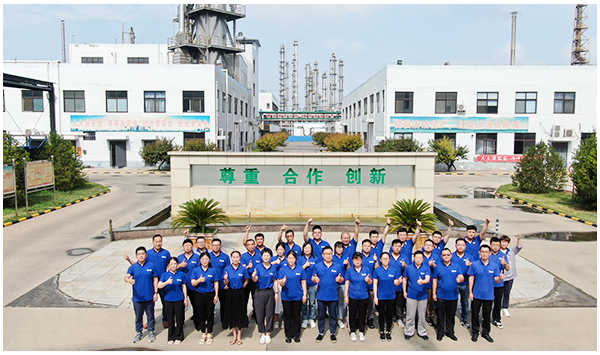
News
Pro . 05, 2024 14:20 Back to list
high quality role of the edta chelating agent
The High-Quality Role of EDTA as a Chelating Agent
Ethylenediaminetetraacetic acid (EDTA) is a synthetic compound widely recognized for its exceptional chelating properties. The ability of EDTA to form stable complexes with metal ions has made it an invaluable tool in various industries ranging from healthcare to agriculture. This article delves into the high-quality role of EDTA as a chelating agent, highlighting its mechanisms, applications, and significance in promoting environmental safety and health.
Understanding Chelation and EDTA's Mechanism
Chelation is a chemical process in which a compound, known as a chelating agent, binds to metal ions to form a stable complex. EDTA is a hexadentate ligand, meaning it can attach to a metal ion through several binding sites. This multi-point attachment enhances the stability of the resulting complex, effectively reducing the availability of metal ions in solution. EDTA’s ability to sequester metals such as lead, cadmium, and mercury plays a crucial role in mitigating metal toxicity, thereby improving health and environmental conditions.
Applications of EDTA
1. Medical Uses
One of the most well-known applications of EDTA is in chelation therapy for heavy metal poisoning. Patients exposed to toxic metals, such as lead or arsenic, can benefit from EDTA administered intravenously to bind these metals, facilitating their excretion through urine. This therapy not only alleviates symptoms associated with metal toxicity but also mitigates long-term health risks, including nephrotoxicity and neurological damage. Moreover, EDTA is also utilized in certain diagnostic tests to assess the levels of metal ions in biological samples.
2. Industrial Uses
high quality role of the edta chelating agent

In the industrial sector, EDTA is commonly employed in various processes. It acts effectively as a sequestering agent in detergents and cleaning products, inhibiting the precipitation of metal ions that can interfere with cleaning efficiency. Additionally, the cosmetic industry utilizes EDTA in formulations to maintain product stability and enhance efficacy. Its ability to sequester minerals is also significant in water treatment processes, where EDTA helps in reducing hardness in water, subsequently improving the performance of cleaning agents and enhancing the lifespans of plumbing systems.
3. Agricultural Applications
EDTA serves a crucial role in agriculture as well. It facilitates the solubility of micronutrients in fertilizers, making them bioavailable to plants. Many essential nutrients such as iron, manganese, and zinc can form insoluble compounds in soil, rendering them unavailable to plants. By chelating these metals, EDTA ensures that crops receive the necessary nutrients for optimal growth, thereby increasing agricultural productivity. This aspect of EDTA is particularly significant in regions with nutrient-deficient soils.
Environmental and Safety Aspects
Despite its numerous applications, the environmental impact of EDTA has raised concerns. Since EDTA is resistant to biodegradation, it can persist in the environment, particularly in aquatic ecosystems. Nonetheless, when used judiciously, EDTA can contribute to mitigating pollution. Its role in cleaning up metal-contaminated sites is critical in restoring environmental health, as chelation can significantly reduce the bioavailability of toxic metals.
To address the environmental concerns associated with its persistence, research continues into the development of biodegradable chelating agents that can offer similar benefits without residual effects. Nonetheless, the versatility and effectiveness of EDTA ensure its continued relevance as a high-quality chelating agent.
Conclusion
The multifaceted role of EDTA as a chelating agent underscores its significance across various domains. From treating heavy metal poisoning to enhancing agricultural practices, its ability to bind metal ions and mitigate their harmful effects is unparalleled. While environmental considerations necessitate careful management, the benefits offered by EDTA in promoting health, safety, and productivity remain substantial. As the quest for sustainable alternatives continues, EDTA's unique properties will likely fuel further innovations and applications in the future.
-
Polyaspartic Acid Salts in Agricultural Fertilizers: A Sustainable Solution
NewsJul.21,2025
-
OEM Chelating Agent Preservative Supplier & Manufacturer High-Quality Customized Solutions
NewsJul.08,2025
-
OEM Potassium Chelating Agent Manufacturer - Custom Potassium Oxalate & Citrate Solutions
NewsJul.08,2025
-
OEM Pentasodium DTPA Chelating Agent Supplier & Manufacturer High Purity & Cost-Effective Solutions
NewsJul.08,2025
-
High-Efficiency Chelated Trace Elements Fertilizer Bulk Supplier & Manufacturer Quotes
NewsJul.07,2025
-
High Quality K Formation for a Chelating Agent – Reliable Manufacturer & Supplier
NewsJul.07,2025
